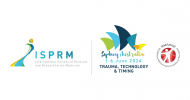Session outline
Over the past decade, the awareness of clinicians dysphagia has been increasing and dysphagia services/treatments have been developed accordingly. However, dysphagia care models and research differ across countries due to differing medical systems and systems of care between countries.
We propose two combined short workshops (90 minutes each) focusing on:
- Global perspectives: Dysphagia clinical care over the past decades
Workshop 1: Global perspectives: Dysphagia clinical care over the past decades
Topics will include views on culture, healthcare framework, and diverse insurance system that strongly influence dysphagia clinical services across the lifespan and varied settings. The speakers from four countries will address their dysphagia clinical care systems.
Workshop 2: Global perspectives: Dysphagia research over the past decades
Topics focus on the clinical research developments in the last decades. For the treatment-oriented evaluation of dysphagia, both kinematic and kinetic analysis have been developed using imaging techniques such as 3D-CT and kinetic analysis using high resolution manometry. For treatment techniques, in addition to electrical stimulation, magnetic stimulation has been utilized. Behavior based treatment based on motor learning has been has been done focusing on muscle strengthening exercise. Each of the 4 speakers will introduce these techniques.
Learning outcomes
Workshop 1:
- Describe the similarities and differences in medical systems for the provision of dysphagia treatment and care services
- Discuss delivery of high-quality dysphagia rehabilitation in the context of culture and medical services
- Address the most common techniques utilized to promote the treatment-oriented evaluation and rehabilitation
Workshop 2:
- Describe the similarities and differences in dysphagia research techniques and tools
- Discuss the performance of high-quality dysphagia research in the context of culture and local norms
- Address the most common techniques utilized to promote/perform clinically-oriented dysphagia research
Target audience
- Physiatrists
- Allied health (SLP/ST)
- Students
- Trainees



